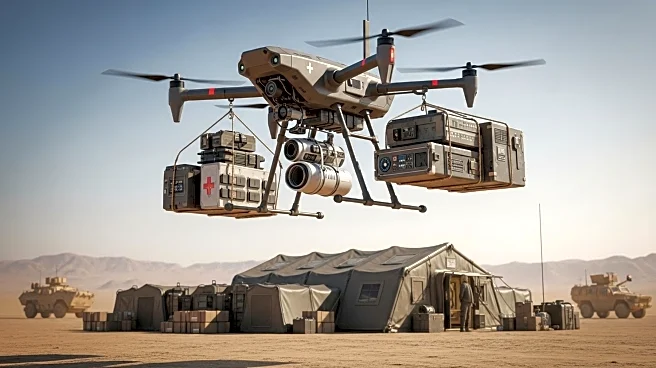What's Happening?
The ongoing conflict in Gaza has led to significant medical advancements by the Israeli military, aimed at saving lives on the battlefield. These innovations include new technologies and improved medical procedures, which have resulted in more Israeli soldiers surviving injuries compared to previous conflicts. The developments are a direct response to the challenges faced in the war, highlighting the role of technological innovation in military medicine.
Why It's Important?
The medical innovations developed during the Gaza conflict have broader implications for military and civilian healthcare. By improving survival rates, these advancements could influence future military strategies and healthcare practices. The technologies and procedures may also be adapted for civilian use, potentially enhancing emergency medical response and trauma care in non-combat situations. This underscores the intersection of military needs and public health benefits.
What's Next?
As the conflict continues, further advancements in medical technology are expected. The Israeli military may continue to refine and implement these innovations, potentially sharing them with allied nations. Additionally, there could be increased collaboration between military and civilian medical institutions to integrate these technologies into broader healthcare systems, enhancing trauma care capabilities globally.
Beyond the Headlines
The ethical implications of using war as a catalyst for medical innovation are complex. While the advancements save lives, they also raise questions about the prioritization of military needs over civilian healthcare. Furthermore, the focus on battlefield medicine may divert resources from other critical areas of public health, necessitating a balanced approach to healthcare innovation.









